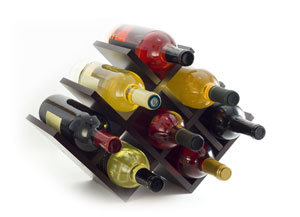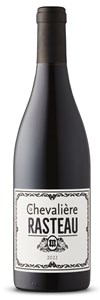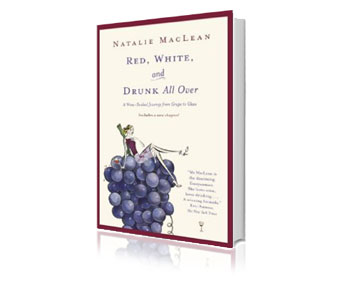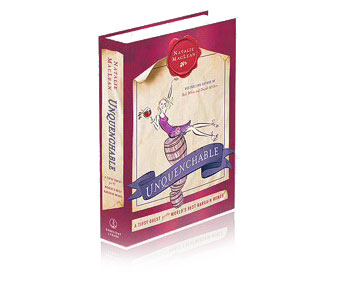Philip Carter Winery

Philip Carter Winery
4366 Stillhouse Road
Hume, Virginia
USA 22639
Phone: (540) 364-1203
http://www.pcwinery.com
Contact: Rob Cox
Email: [email protected]
Charles Carter, 5th child born of Colonel Robert “King” Carter and Elizabeth Landon-Wells was born in Lancaster County, Virginia, and resided in Lancaster and King George County, Virginia.
“King” Carter’s wealth came from service as land agent for the English Proprietor, Lord Fairfax. As such, he collected rents on the millions of acres owned by Fairfax in Virginia. Politically active and instrumental in the development of trade and commerce in the colonies, the Carter family at one time owned over 300,000 acres and built numerous estate homes in Virginia, many of which remain as historic landmarks today.
In 1754, Charles Carter built Cleve Plantation and its magnificence vied with seats of his brothers, John of Shirley, Robert of Nomini, Landon of Sabine Hall, and with the homes of his sisters, Anne of Berkeley and Judith of Rosewell.
Cleve posed an imposing exterior, inspired by English designs of the type published by architect James Gibbs, and aptly conveyed the Carter family’s sophisticated tastes. Cleve differed from other brick dwellings of Virginia in surpassing them all in richness of stone dressings. At Cleve stone was found in all of the architectural features: the water-table, window arches, sills and jambs, doorway and quoining of the corners.
Cleve was celebrated for its fine collection of Georgian portraits. Rows of Carters looked down on the many generations that passed through the great hall. Three times married, first to Mary Walker, then Anne Byrd, and Lucy Taliaferro, Charles Carter had a total of 3 sons and four daughters. In his will written in 1762, Charles Carter stipulated that his sons learn “languages, mathematicks, philosophy, dancing and fencing” and that they be put with a practicing attorney until they arrive at the age of 21 years and 9 months. Carter’s daughters, on the other hand, were to be “maintained with great frugality and taught to dance”.
A fire in 1800 destroyed the Cleve interior after only a half-century of use but left the brick and stonewalls standing. A second fire in 1917 caused the demolition of the rebuilt structure. Cleve’s plan is known from surviving foundations and from photographs of the exterior taken before the second fire.
In 1759, a committee of the Virginia assembly was formed and charged with the question of economic diversification, a question made urgent by the depression in the tobacco trade. As its chairman, Charles Carter entered into correspondence with Peter Wyche in London, chairman of the agriculture committee for the Society for the Encouragement of the Arts, Manufacture, and Commerce (now the Royal Society of Arts), which offered prizes for various desirable enterprises in the colonies, among them vine growing and winemaking. Carter’s correspondence reveals that the prospects and methods for the cultivation of the grape in Virginia were an important subject. Carter had already begun grape growing at Cleve, where he made wines from both native and European grapes (it is said), and it was natural that he should have chosen commercial winemaking as one of his proposals for economic reform in Virginia.
The London society took an encouraging view of Carter’s proposals and recommended various vines and practices, including the trial of distilling brandy from the native grapes. In 1762 Carter, who by then had 1,800 vines growing at Cleve, sent to the London society a dozen bottles of his wine, made from the American winter grape (“a grape so nauseous till frost that the fowls of the air will not touch it”: probably Vitis cordifolia is meant) and from a vineyard of “white Portugal summer grapes.” These samples were so pleasing a taste—“they were both approved as good wines,” the society’s secretary wrote—that the society awarded Carter a gold medal as the first person to make a “spirited attempt towards the accomplishment of their views, respecting wine in America.”
Visitors to Philip Carter Winery are invited to view an authentic replica of the 1762 gold medal presented to Mr. Carter by the Royal Society, read his correspondence with the Royal Society on display in the Cleve Hall tasting room, and enjoy our premium wines that are produced in honor of Charles Carter’s dream for Virginia begun roughly 250 years ago
Winemaker: Rob Cox
Twitter: http://twitter.com/pcwinery
Facebook: http://www.facebook.com/pages/Hume-VA/Philip-Carter-Winery/215815316318
Update Winery information Submit new wines to be posted Wineries of America
Although there aren't any wines associated with this winery, Natalie may have reviewed brands that this winery produces and she just didn't know to designate this winery in her tasting note. You can search here for specific brands.
 Best Books of the Year
Best Books of the Year Best Books of the Year
Best Books of the Year



















